Welcome to the Albright Blog
Here we will be posting our thoughts on various aspects of the industries we serve and the services we provide. By all means contact us if you have any comments to make.
Reinforced Concrete Bund Design
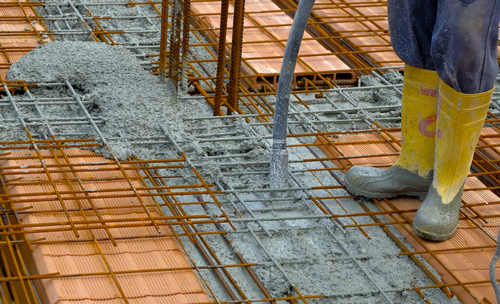 Albright are specialists in reinforced concrete bund design. Bunds are enclosures capable of holding liquids that can escape from vessels and pipes within the bund wall.
Albright are specialists in reinforced concrete bund design. Bunds are enclosures capable of holding liquids that can escape from vessels and pipes within the bund wall.
Because of the safety aspect of its job, a bund should be of sufficient capacity to hold all of a tank’s contents in the event of tank failure and be fully watertight to ensure safety until safe disposal. All of our bunds will meet the requirements of CIRIA C736 (containment systems for the prevention of pollution).
This is especially crucial in the oil and chemical industries, especially after the catastrophic Buncefield Oil Storage Terminal explosion of 2005, where the “failure of secondary and tertiary containment” was held to have contributed to the failure to prevent a major accident at the site.
The Control of Major Accident Hazards (COMAH) regulations ensure, amongst other things, that facilities are designed, constructed and maintained to reduce risk.
Design is therefore crucial. Approaches to the design of concrete structures have changed over time to meet new safety standards and they are covered by design codes. The British Standard (BS 8007) has made recommendations in the design and construction of normal reinforced and pre-stressed concrete structures used to retain aqueous liquids since 1987. Euro Code 2 EN 1992-3 Part 3: Liquid Retaining Structures also covers this.
As well as providing fully compliant and efficient concrete bund design, Albright also provides specialist periodic inspection and certification of secondary containment on industrial sites.
Bulk Bitumen Storage
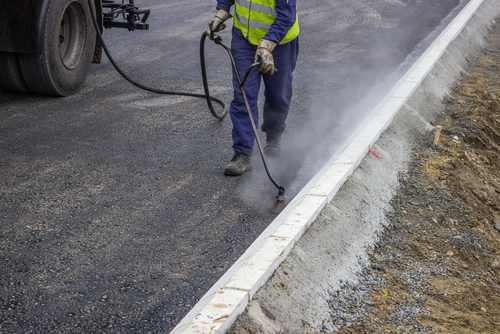 When most of us think of bitumen, we think of roads, let’s face it! We think of the miles of black ribbon that provides the smooth running of our car, and millions of others, from that day’s A to that day’s B. But how many of us think about where bitumen comes from, what other uses we have for it and, just as vitally, how it is stored?
When most of us think of bitumen, we think of roads, let’s face it! We think of the miles of black ribbon that provides the smooth running of our car, and millions of others, from that day’s A to that day’s B. But how many of us think about where bitumen comes from, what other uses we have for it and, just as vitally, how it is stored?
Bitumen is the last by-product from oil refineries. The final product from the fossil fuel that has oiled (pun intended!) the wheels of the economy for the last century. There are oil refineries in the UK of course, but much of the bitumen we use is bought in by ship and piped into storage tanks.
Albright has extensive experience designing bitumen storage and road tanker loading facilities, encompassing all aspects of the civil, mechanical and electrical design. We can also provide project management services and ongoing maintenance support.
Bitumen must be kept hot at all times, up to 200oC hot! To do this, Albright uses thermal oil in coil heating elements within the tanks to keep the bitumen at the correct temperature whilst it is stored.
Keeping bitumen hot is so vital to using it properly, that orders for bitumen are made within hours of intended use and shipped out in special trucks that keep the heat in as much as possible for delivery and prompt use, whether mixing with sand and gravel for asphalt, or one of the many other products it features in, such as roofing (for it’s waterproofing qualities), or pipe coatings, carpet backing and paint (for its sealant properties).
With the current world use of bitumen estimated at 102 million tonnes a year, Albright is proud to bring its expertise to this growing industry.
Bulk Liquid Storage
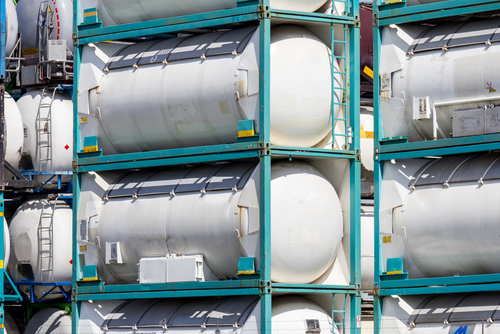 Albright can help with all aspects of bulk liquid storage, from design and installation through to commissioning, maintenance and, ultimately, safe removal and decommissioning.
Albright can help with all aspects of bulk liquid storage, from design and installation through to commissioning, maintenance and, ultimately, safe removal and decommissioning.
Whether it is fuel or chemical storage and whatever the location or size, Albright’s expertise ensures the job is done efficiently and professionally, in full compliance with the COMAH containment policy.
From the commissioning and installation of bulk liquid storage facilities, Albright will ensure all gauging systems, filters and pumps are fitted safely, along with overfill prevention devices.
Albright can provide for the design and installation of facilities ranging from a single 50 cubic metre tank up to a 60,000 cubic metre tank farm.
These facilities must be regularly maintained for safety and regulatory purposes, and Albright specialises in maintenance regimes that includes cleaning, capping and removal of pipework and pumps. We will arrange environmental and contamination assessments and dispose safely of hazardous waste as required.
We can also conduct the uplift and removal of underground storage tanks if needed, and safely dismantle or replace silos and water tanks.
Industrial plant maintenance
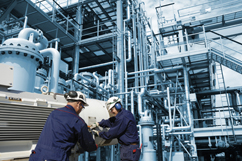 Albright’s industrial plant maintenance service is second to none. With its commitment to delivering the highest quality design and engineering services to the petrochemical and processing industries and the extensive experience and knowledge of its engineers, Albright is committed to delivering excellence.
Albright’s industrial plant maintenance service is second to none. With its commitment to delivering the highest quality design and engineering services to the petrochemical and processing industries and the extensive experience and knowledge of its engineers, Albright is committed to delivering excellence.
Beginning with preventativemaintenance routines, Albright will maintain equipment and facilities so that they stay in prime operating condition. By using visual and mechanical inspections and preserving and restoring component parts before they actually fail, full reliability and efficiency can be assured. Couple this with general mechanical works and oils and grease routines and you can see that Albright’s services are thorough and responsible.
Some other examples of Albright’s maintenance services include full weld repairs, pump replacement and modifications to piping systems.
Albright are also specialists in tank repairs, including floor replacement, new nozzles and patch repairs and inserts, to meet the requirements of API 653. We also employ tank-jacking techniques to repair or replace tank floors and re-profile the foundations. Albright can take on the entire process.
Flame Arrestors are often located in vent pipes from storage tanks and other pipework and are essential for reducing fire and explosive risk. Flame arrestors have a tendency to block up. As part of a regular maintenance regime, Albrightwill ensure that these safety-critical items remain fully functional at all times.
Selecting the proper industrial plant maintenance strategies increases plant reliability, keeping you safe and saving you money.
Design Engineering Services
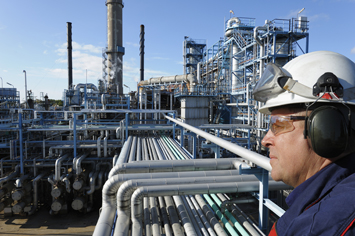
Albright’s design and engineering services provide an unrivalled focus on quality, which you can only get from a company that is large enough to tackle any project, but whose size ensures that no detail will be missed or overlooked.
From beginning to end, an Albright job will tick every box and leave you, the client, with a properly completed job. Project management is key and Albright specialises in this. From concept to completion, Albright Design will adopt a fully flexible approach, affording us the ability to provide a competitive and cost-effective solution. From feasibility to Procurement, Expediting & Inspection, we’ve got it all covered.
Once on board, our highly skilled and experienced managers and engineers will guide the overall project safely through to sign-off.
Albright Engineering provides mechanical and installation services across the broad spectrum of industry. It also offers support to facilities management companies involved in building services and maintenance.
From Tank Jacking & Repairs to Steelwork Fabrication & Installation, Albright Engineering will take the care required to make sure your project is completed on time and on budget and, most importantly, to your satisfaction.
Albright can provide a full range of maintenance services, from smaller maintenance projects to larger turnkey packages, and works in a range of sectors including Bio-fuels, Renewable Energy, Chemical & Petrochemical, Environmental, Power Generation & Utilities, Oil & Gas, Building Services, Agricultural Storage, and Bulk Liquid Storage Terminals.
Our Front End Design Service helps companies clearly define the scope of a project and its likely cost, enabling the customer to evaluate its commercial viability.
All in all, if you need design engineering experience, you need Albright.
What are Biofuels?
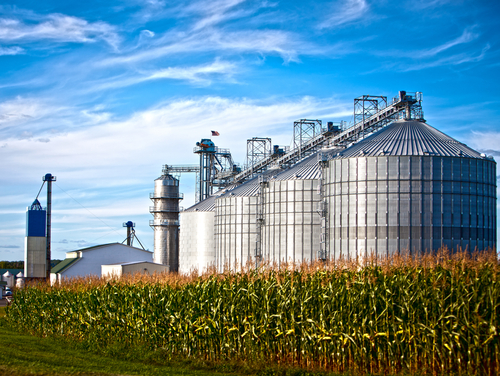
Biofuels are fuels made from organic materials, simply plants! They represent one answer to diminishing supplies of fossil fuels.
Fossil fuels, such as coal and gas, take millions of years to form (making replacement unworkable in the short term) and so have finite resources. This means that fossil fuels are increasing in price as supplies reduce, and will continue to do so.
Biofuels is an umbrella term that can encompass hydroelectric power generated from wind and waves, but it is usually used to mean substitutes for petrol, diesel and aircraft fuel.
Biofuel production has risen sharply over the last few years, reaching 105 billion litres in 2010, up 17% from production in 2009.
Biofuels come in many forms. Two of the best known are Biodieseland Bioethanol. Biodieselproduction reached 86 million litres in 2010, and it made up 2.7% of the world’s fuel for road transport. The largest producer of biodiesel is the European Union, which accounted for 53% of production in 2010. Biodiesel is made from rapeseed oils and other vegetable oils.
You may not realise it, but Bioethanol already constitutes up to 10% of the petrol you buy at the pump. That level can be used safely with vehicles without modifying engines. Bioethanol is made from fermenting sugars from sugar cane, wheat and other plants. Bioethanol is used more widely in the USA.
Albright have successfully completed several projects for the blending of ethanol into gasoline for side stream blending at the road loading racks to inject ethanol upstream of the custody transfer meter on an individual loading arm basis and wild stream blending upstream of the bulk storage tanks.
Biofuels are said to be carbon neutral and are growing in popularity as fossil fuel supplies run out and the need for energy security grows in importance.
Google+ Email us with your thoughts
Oil and Gas Pipeline Design Maintenance and Repair
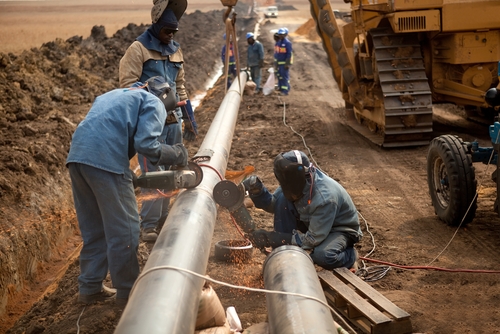 Pipelines are a safe and efficient means of transporting large quantities of crude oil and natural gas over land
Pipelines are a safe and efficient means of transporting large quantities of crude oil and natural gas over land.
Designing pipeline systems requires consideration of a number of factors, including distance to be travelled, expected volumes and the type and range of products to be transported. These factors determine the diameter and wall thickness of the pipe to ensure safe operation and also how many pumping or compression stations will be needed to keep the products flowing.
In addition, there are a number of other factors to be considered when deciding on which route a pipeline should take. These include:
Ensuring pipeline integrity starts with proper pipeline design and construction, incorporating adequate safeguards and protective equipment. Routes chosen should minimise potential environmental impact and avoid human interaction with the pipeline. Pipelines are coated with specially designed materials to protect against corrosion and environmental damage but still require a proper scheme of maintenance and repair.
Continuous monitoring and inspection to identify any points of weakness or potential failure with any repairs carried out by properly qualified staff is required to ensure continued safe operation.
Find out more about Albright's maintenance services
here.
The Petrochemical Design Industry in the UK
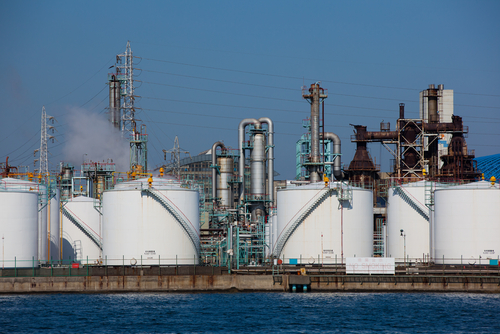
Following the Texas City, in the US and Buncefield, in the UK, incidents where large explosions at oil refineries occured, the Process Safety Leadership Group (PSLG) was formed by the industry and its regulators to critically examine the issues associated with the operation and maintenance of high hazard processes and, in particular, the safety and environmental standards of fuel storage sites and other facilities storing large quantities of gasoline and other flammable liquids.
The group has published a report which is generally referred to as ‘the PSLG Final Report’ which gives guidance on the minimum standard of control and good practice relating to secondary and tertiary containment for facilities covered by the CA Control of Major Accident Hazards (COMAH) Containment Policy.
The main areas of focus in the report are the systematic assessment of safety integrity level requirements, protecting against loss of primary containment using high integrity systems, and engineering against escalation of loss of primary and secondary containment. As a result of this report a number of operators have, in recent years, retrospectively been installing tank overfill protection and spill detection systems.
With the coming into force of the renewable transport fuels obligation in 2008, most of the major transport fuels suppliers have now had to install facilities for the blending of bioethanol, biomethanol and biodiesel with more traditional fossil fuels. There has also been a trend toward diesel powered vehicles in the UK which has resulted in a reduction in the demand for gasoline. In general, demand for road transport fuels is in decline due in part to the current economic environment and the ongoing development of more fuel efficient engines.